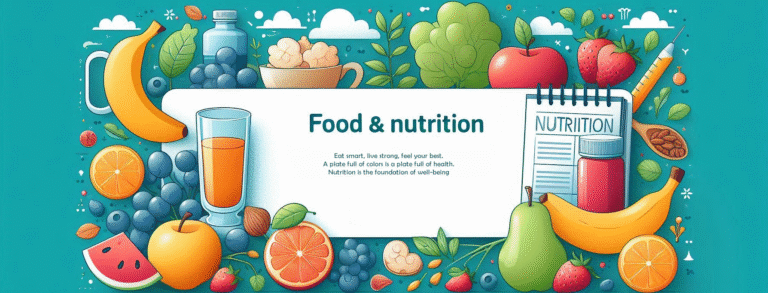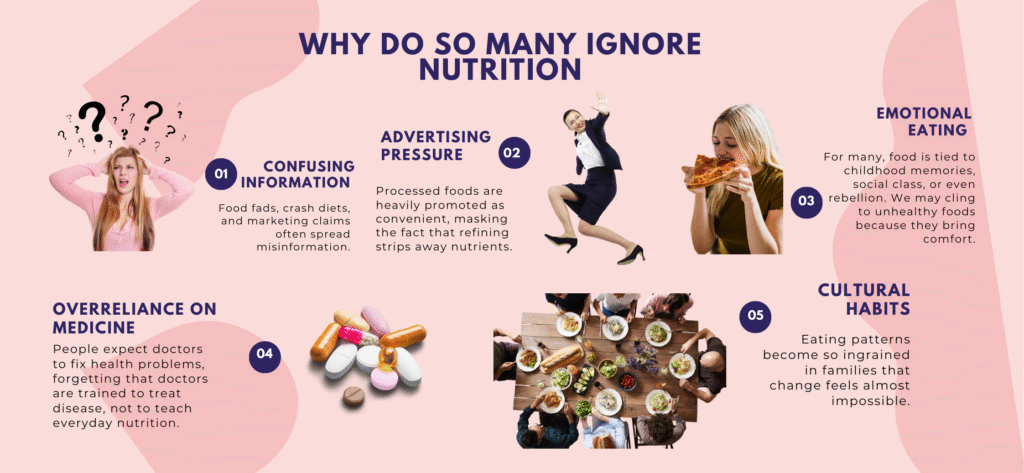
Nutrition Can Be a Fascinating Subject
When we think of food, most of us picture flavor, comfort, or filling our stomachs. But nutrition is much more than that—it’s the foundation of how we look, feel, think, and even behave. The choices we make at the dining table ripple into every part of our lives, from energy levels to emotional balance.
Why Nutrition Matters in Daily Life
The food you eat can determine whether you end the day with enough strength to enjoy the evening or collapse into bed exhausted. Good nutrition influences:
- Mood & Personality: Balanced eating helps prevent irritability and mood swings.
- Appearance: Shiny hair, strong nails, and healthy skin often reflect a nutrient-rich diet.
- Performance: Focus, memory, and productivity rely on steady energy from wholesome food.
In other words, nutrition is not just about avoiding illness—it’s about unlocking your full potential.
Why Do So Many Ignore Nutrition?
Despite its importance, many people don’t apply basic nutrition knowledge. Why?
- Confusing Information – Food fads, crash diets, and marketing claims often spread misinformation.
- Advertising Pressure – Processed foods are heavily promoted as convenient, masking the fact that refining strips away nutrients.
- Emotional Eating – For many, food is tied to childhood memories, social class, or even rebellion. We may cling to unhealthy foods because they bring comfort.
- Overreliance on Medicine – People expect doctors to fix health problems, forgetting that doctors are trained to treat disease, not to teach everyday nutrition.
- Cultural Habits – Eating patterns become so ingrained in families that change feels almost impossible.

The Psychology of Eating
Food isn’t only fuel—it’s also emotional. Some dislike milk not because of its taste but because they associate it with parental pressure. Others crave sweets when they feel unloved or stressed. These hidden emotional triggers can sabotage healthy choices.
Learning to recognize the psychology behind cravings and dislikes is the first step to reclaiming control over eating habits.
Why Food Should Taste Good
One common mistake is believing that healthy food must be bland or unappealing. In reality, nutritious meals should also be enjoyable. Training your taste buds to appreciate whole, natural foods is both possible and rewarding. Just as people learn to like coffee or wine over time, the same can happen with vegetables, whole grains, or nuts.
Nutrition as Preventive Medicine
Doctors focus on treating diseases after they appear, while nutrition prevents many of them from occurring in the first place. A balanced diet supplies the body with all the tools it needs to fight fatigue, resist infections, and repair tissues.
If families took nutrition seriously, we would see fewer health issues, reduced medical bills, and longer, more energetic lives.
Final Thoughts
Nutrition is deeply personal—it’s about you, your energy, your mood, and your future. While medicine saves lives in emergencies, nutrition saves health every single day. Think of it as your daily insurance policy for a vibrant and fulfilling life.